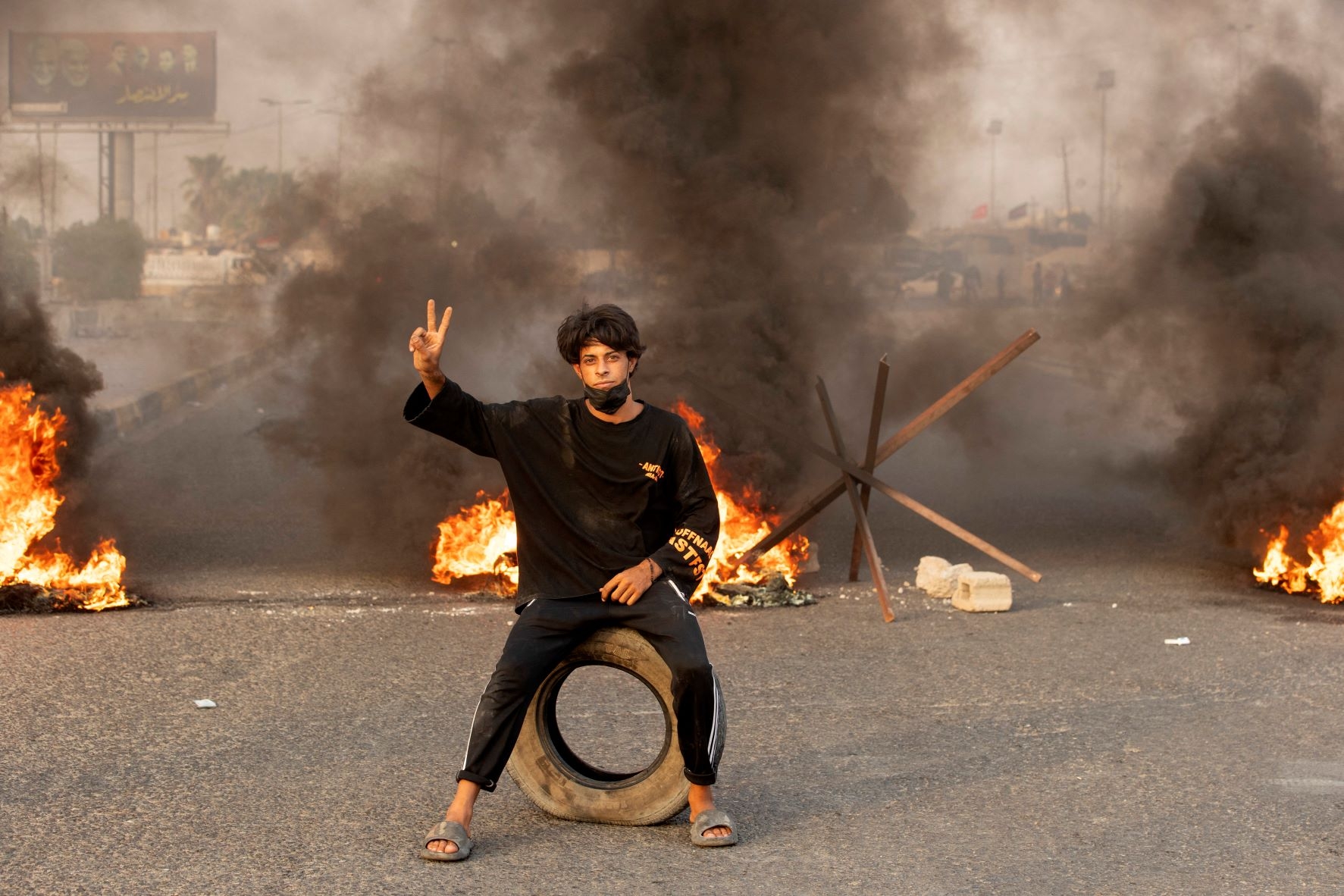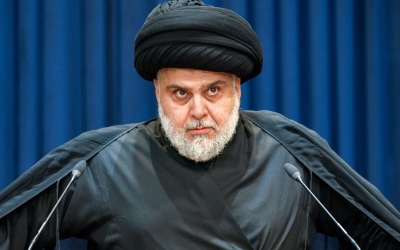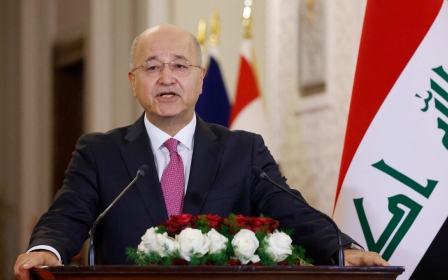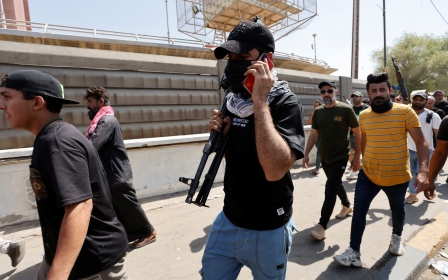Iraq: Four killed in Basra clashes between Sadr and Iran-backed groups

The leader of the armed Asaib Ahl al-Haq organisation, which is backed by Iran, has ordered the closure of his organisation's offices after deadly clashes with supporters of Shia cleric Muqtada al-Sadr in the southern city of Basra left at least four people dead.
Security officials told media the fighting took place in the centre of the city between supporters of Sadr and Asaib Ahl al-Haq overnight and into Thursday morning.
It comes in the wake of violence in the capital Baghdad earlier in the week which left dozens dead after Sadrists stormed the fortified Green Zone and fought with security forces and supporters of Iran-backed groups.
Sources told local media that fighting broke out after a member of Sadr's armed wing, Saraya al-Salam, was killed outside one of the offices of Asaib Ahl al-Haq.
“After the assassination of the Saraya al-Salam leader [the Sadrists] went to the Asaib Ahl al-Haq headquarter in Manawi Basha district - they clashed and opened fire against their building, chanted against them, then they withdrew”, one eyewitness, Ahmed Hussein, told Middle East Eye using a pseudonym.
New MEE newsletter: Jerusalem Dispatch
Sign up to get the latest insights and analysis on Israel-Palestine, alongside Turkey Unpacked and other MEE newsletters
“I saw another group of Saraya al Salam going towards the Hashd al-Shaabi headquarters and opening fire,” he added, referring to the irregular brigades which include Asaib Ahl al-Haq under their umbrella.
On Thursday, Asaib Ahl al-Haq's leader Qais al-Khazali put out a statement declaring that he had ordered the organisation to close all their offices until further notice.
"I ask the brothers in Asaib Ahl al-Haq to close all the offices of the movement starting from now and until further notice, and any office that is intended to be burned, let them burn it and do not worry about that - God will compensate you for that in a great compensation that you do not expect," he wrote.
He also dismissed comments made by Sadr's spokesperson Salih Muhammad al-Iraqi on Twitter, in which he attacked Khazali over the violence in Basra, calling him "insolent" if he did not restrain his "impudent militias" and warning him not to be "reckless about the blood of the people."
On Tuesday, Sadrists in Basra stormed the headquarters of Asaib Ahl al-Haq, torching the building and burning images of assassinated Iranian Revolutionary Guards leader Qassem Soleimani and Iraqi militia leader Abu Mahdi al-Muhandis.
Clashes had fist erupted in Basra on Monday evening, but no casualties were reported.
'Not a revolution'
This week's violence in Iraq, which saw at least 28 people killed, was sparked off on Monday by an announcement by Sadr that he was planning to retire from politics.
On Monday, as the fighting appeared set to spiral out of control, Sadr held a news conference in Najaf where he gave his followers one hour to end their protests.
"This is not a revolution because it has lost its peaceful character," Sadr said. "The spilling of Iraqi blood is forbidden."
Shortly after, his supporters apparently heeded his words and began leaving the Green Zone, where they had been occupying parliament for weeks.
MEE's correspondent in Basra reported that calm had returned to the city following Sadr's remarks.
Iraq has been caught in a deadlock since October 2021, when largely boycotted elections returned Sadr's Sairoon party as the largest group in parliament.
Since then there have been numerous attempts to form a government, but none have been successful.
In June, in what he said was an attempt to break the deadlock, Sadr pulled his MPs from parliament, leaving the largely Iran-backed Coordination Framework alliance dominating the body.
Middle East Eye delivers independent and unrivalled coverage and analysis of the Middle East, North Africa and beyond. To learn more about republishing this content and the associated fees, please fill out this form. More about MEE can be found here.





